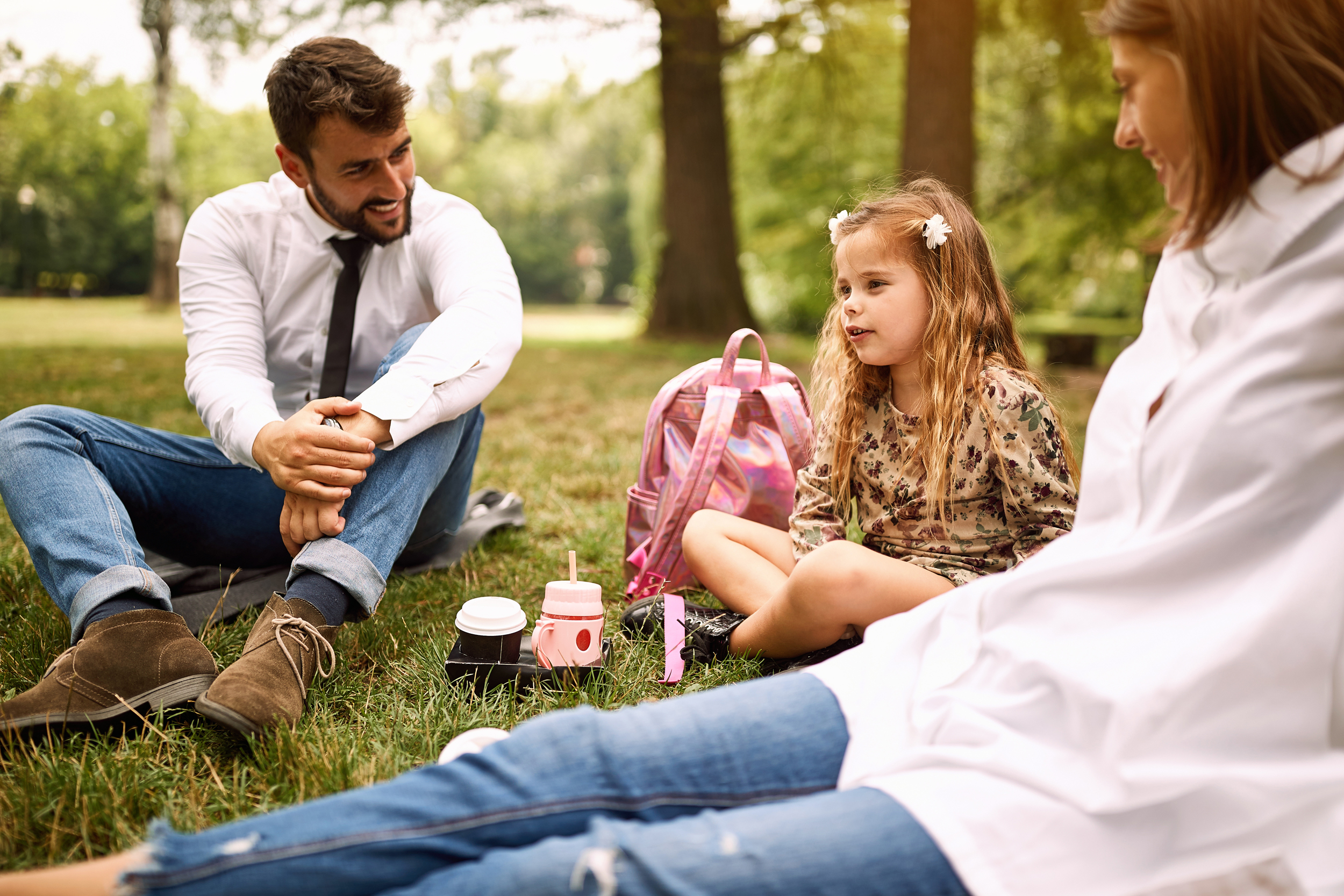There is a parable for new parents I like to recount about filling a large vase with boulders – it reminds me of raising a family. A teacher asks their student to fill the vase with a few boulders. Once the boulders have been arranged to fit, the student is asked to fill in the space around the boulders with gravel and return to the master. At that point, the Zen master offers sand and the student again fills the vessel until full. Lastly, the master offers water. The student pours the water into the vase watching it fill the voids between the solids in the vase. The point becomes obvious: the boulders need to be prioritized in order to fit into the vase before everything else. Raising a family is like filling this vase. There will always be gravel, sand, and water to fill your vase, but if your family’s core principles – the boulders – don’t go in first, there will be no room for them.
Raising a family is like filling this vase. There will always be gravel, sand, and water to fill your vase, but if your family’s core principles – the boulders – don’t go in first, there will be no room for them.
One of the first tenets of parenting is to focus on these core principles that can be your backbone as a parent. Safety, kindness, love, and compassion for self and others stand out as common choices. It is all too easy to lose sight of your family’s boulders while managing the minutia – the gravel, sand, and of course, water, lots of water. The decisions between boulders and sand is more a daily struggle as we parents fight with the immediacy of daily decisions (the sand) and taking the long view of our child’s growth and development. This is made more difficult because most of our children lack the ability or interest to focus on their own long-term outcomes.
Your average toddler may be able to think through immediate cause and effect: I push my brother away from my toy and I can play with it without interruption. By kindergarten that same child has likely developed a slightly longer time horizon and understands that pushing the brother may actually result in having to endure a time-out and the disappearance of that toy. By middle school the child may be able to think through how to earn a coveted toy by working through chores over the week or even a few weeks. By high school, most students are ready to apply to college, now able to think through a few years of their future. Even while legally becoming an adult at 18, most older teens have not developed the ability to imagine details of their lives at 40. And this is all normal; it’s even healthy.
We want our children to be aware of their futures, but it’s more important for them to be present in their childhood.
We want our children to be aware of their futures, but it’s more important for them to be present in their childhood. Longevity, then, means something to adults that is often felt as foreign or academic to their very own children. In fact, kids who focus overwhelmingly on their distant futures often feel anxious. We pediatricians see this all the time: If I don’t take that extra AP course I may never be a brain surgeon. My life will be useless if I don’t get elected student body president.
Consider the typical risky teenage behavior. Developmentally, teenage brains are not set to consider the next few decades of their lives before making decisions. Most teens make decisions with a few weeks to a few months of forethought. Of course, this can bring household friction as parents worry over the 20-year ramifications of their teenagers’ decisions to drop this class, not do that essay, skip out on that internship. It is mostly about teenagers favoring the near-term over the long-term consequences, yet, after over a decade of parenting, most of us are well aware of the potential longer term consequences. It can be very hard to let our adolescents learn these lessons through experience, rather than through lecture. These are difficult to balance and often just recognizing the differences in mindset can go a long way towards teens and parents feeling heard by each other.
Newborns are on the opposite side of the spectrum as their conscious memory is very limited. In fact, it is not until four months of age when an infant waking up alone can recall that she has parents just out of sight. This development and subsequent solidification of object permanence is why sleep training gets harder and harder with every month after this cognitive milestone develops.
The sense of time for toddlers, and then school-aged children, lies somewhere in between. A typical toddler can usually hold a few hours of the future in their minds, yet the use of a visual 24-hour calendar can help them literally see into their future. (E.g., Daddy comes home tomorrow morning and then we are going to the beach after lunch.) For an elementary school student, a few days in advance is a developing skill, but a month may seem out of reach. Again, many teachers of older elementary students may begin to use aids such as a classroom calendar of the month or even academic planners in order for their students to flex their concepts of longevity up to 3-4 weeks.
The common question of asking a toddler what she wants to do as an occupation when she grows up is a great example. The answer of “an ice cream scooper” is telling you that your child wants to work in a dessert shop today, not when she’s 40 years old. Of course, most of us understand this with our toddlers; she can only answer according to her developed sense of time. To her the question might as well be, “What occupation do you want to have right now?”
We parents can get so wrapped up in the details while we worry about the long term that we lose sight of meeting our children where they are.
Some of the best family examples of tolerating these variations in the perception of time come from involved grandparents. We parents can get so wrapped up in the details while we worry about the long term that we lose sight of meeting our children where they are. A grandmother who lets her three-year-old granddaughter dump out her purse and explore the benign contents is paying attention to this discrepancy. Yes, the nail-clippers may require removal from the stack, but the reading glasses, the mints, and the make-up can all be easily replaced. Grandparents usually understand that there is plenty of time for that three-year-old to figure it all out. “Parent your children with a grandparent’s perspective” means recognizing the small stuff doesn’t matter that much when you are young. The freedom to explore means so much more.
So what do we do? Of course, it’s a balance. As Mark Twain said, “Everything in moderation, including moderation.” The wisdom gained when children are given freedom to explore usually trumps knowledge gained by avoiding every mistake.
Forcing, or even expecting, children to adapt to our adult sense of time is not only frustrating, but unhealthy. A child focussing on her distant future is robbing herself of her childhood whimsy. The play, the exploration, the freedom of childhood comes from children not caring about what their lives will be like when they are 40. They will have plenty of time to consider this when their brains actually develop that far. Once we parents see this discrepancy for what it is – normal development – our parenting brains can rest a bit easier.
Longevity for children is about finding the boulders for your family and making sure those are discussed and experienced by our children, over and over. If self-compassion in your family means healthy eating, then feeding children real food with real people around to enjoy it is how we might prime our children to prioritize the boulders. When they binge on cake at a friend’s birthday, we parents can let it go. As long as our boulder is in the family vase appropriately, trust that most of the time, they are getting the right messages. If the excess cake leads to a stomach ache, you have a gift. Grandparent-like patience with added sympathy and curiosity can lead the child to the obvious conclusion. In this example, the lesson learned through exploration is likely more valuable than any discussion about healthy eating.
Longevity for your children means curating their environments just enough so the risks to their mistakes are felt as real but are appropriately blunted, just like kindergarten scissors, and true to your family boulders.


